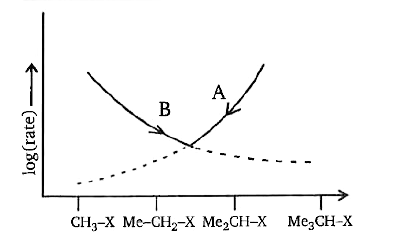Which of the following is true about prions
Useful polysaccharide of galactose
High molecular weight infectious proteins
Small nucleic acid fragments capable of replication
Low molecular weight infectious proteins.
The correct Answer is:D
Step-by-Step Solution:
1. Definition of Prions:
- Prions are defined as proteinaceous infectious agents. They are essentially misfolded proteins that can induce other normal proteins to also misfold.
2. Characteristics of Prions:
- Prions are infectious because they can cause diseases by converting normal proteins into misfolded forms.
- They do not contain nucleic acids, which differentiates them from viruses and other infectious agents.
3. Molecular Weight:
- Prions have a low molecular weight compared to other infectious agents. This is an important characteristic that helps in identifying them.
4. Evaluating the Options:
- Option A: "Useful polysaccharides of galactose" - This is incorrect because prions do not contain polysaccharides.
- Option B: "High molecular weight of infectious protein" - This is also incorrect as prions are characterized by their low molecular weight.
- Option C: "A small nucleic acid fragment capable of replication" - This is incorrect because prions do not have nucleic acids at all.
- Option D: "Low molecular weight, infectious protein" - This is correct as it accurately describes prions.
5. Conclusion:
- The correct answer is Option D: Low molecular weight, infectious protein.
- Prions are defined as proteinaceous infectious agents. They are essentially misfolded proteins that can induce other normal proteins to also misfold.
- Prions are infectious because they can cause diseases by converting normal proteins into misfolded forms.
- They do not contain nucleic acids, which differentiates them from viruses and other infectious agents.
- Prions have a low molecular weight compared to other infectious agents. This is an important characteristic that helps in identifying them.
- Option A: "Useful polysaccharides of galactose" - This is incorrect because prions do not contain polysaccharides.
- Option B: "High molecular weight of infectious protein" - This is also incorrect as prions are characterized by their low molecular weight.
- Option C: "A small nucleic acid fragment capable of replication" - This is incorrect because prions do not have nucleic acids at all.
- Option D: "Low molecular weight, infectious protein" - This is correct as it accurately describes prions.
- The correct answer is Option D: Low molecular weight, infectious protein.
Topper's Solved these Questions
- VIRUSES VIROIDS AND PRIONSBOOK - DINESH PUBLICATION ENGLISHCHAPTER - VIRUSES VIROIDS AND PRIONSEXERCISE - CYG
13 Videos
- VIRUSES VIROIDS AND PRIONSBOOK - DINESH PUBLICATION ENGLISHCHAPTER - VIRUSES VIROIDS AND PRIONSEXERCISE - CYG
13 Videos
- VERTEBRATA-AGNATHA AND PISCESBOOK - DINESH PUBLICATION ENGLISHCHAPTER - VERTEBRATA-AGNATHA AND PISCESEXERCISE - Check Your Grasp
12 Videos
Similar Questions
Knowledge Check

Which of the following is true about given graphs A and B ?AA→SN1 B→SN2BA→SN1 B→SN2CAandB→E1DAandB→E2Which of the following is true about bryophytes?
AThey possess archegoniaBThey contain chloroplastCThey are thalloidDAll of the aboveWhich of the following is true about Active transport?
Auses energy to pump molecules against the concentration gradientBis as active processCis carried out by membrane proteinsDall of these.
Which of the following is true about linear isotropic dielectric ?
View SolutionWhich of the following is not true about polymers ?
View SolutionWhich of the following is not true about biodiversity?
View SolutionWhich of the following is true about RNAi process ?
View SolutionWhich of the following is true about fertilisation in human beings ?
View Solution
